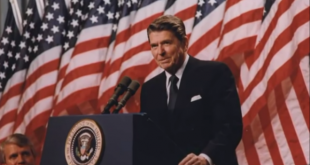The time to assess where we stand in relation to the evolving political scene in the United States is now, immediately after the effects have been finalized.
Some maintained that the outcome of the vote counting did not accurately reflect the state of opinion in the country on account of voter theft and manipulation. What is important to realize that the former conclusion about opinion can be false even while the later conviction about vote fraud can be correct.
How can that be? The evidence from the Georgia election demonstrates with conclusive evidence that the normal effect upon opinion of vote counting outcomes has prevailed in Georgia. Political Scientists long ago demonstrated a behavioral tendency that has never changed: in the aftermath of an election, more voters claim responsibility for the winning result than actually voted for it. That is, they claim to have voted for the victor even when they did not. That is part of the reason that the stolen election in 1960 nevertheless led to an electoral landslide just four years later for the party that had stolen the election.
There is more: the reason the fall election was able to be manipulated in the manner it was is itself a reflection of changing voter sentiments in the country. Those changing sentiments may be partly an eccentric reaction to the personality of Donald Trump (I am personally aware of numerous individuals whose antipathy was thus strong). However, the full picture goes well beyond the reaction to President Trump and embraces the increasing division in discourse between those who reject the country’s past as a path to the future and those whose hopes are inherited from the past, on the one hand, and, on the other the cultural division between those who believe that refashioning anew what can be near and dear to us and those who believe that what has been near and dear lies in grave peril. Across such divisions there is no prospect of articulate conversation.
The played out in the election, therefore, is quite material. For it identifies the real possibility that we have entered a new American experiment of governing without the people. In that new reality elections are not genuine expressions of public will but only representations of manufactured impressions. If that is true, then the mechanisms of the republic have at length failed. They were already declared to have failed by the Supreme Court in 1938. But that failure is now on full display 82 years later.
How then, did the election reveal this? By an evident process of manufacturing votes those who did so demonstrated that the vote no longer has any substantive meaning; it is only an artifact to be engineered to produce results favorable to those most adept (and most inclined) to engage in such conduct. We can count on an imitation of those processes. How can we know that this happened without the evidence? We cannot know. However, we do have the evidence, and the mantra of “show me the evidence” is merely part of the manipulation. While it is no more possible on constitutional grounds to reverse these results than it was in 1960, it is nevertheless entirely possible to demonstrate with scientific accuracy just what happened. This is not the place for a full explanation, however, I can briefly describe what it would look like.
In the first place, an analysis of voting patterns will disclose the distinct pattern of vote manufacturing occurring exactly where the greatest potential for additional votes existed: in jurisdictions where there was a difference between likely vote and potential vote of great enough magnitude to grant free play to the process. Coupling that statistical analysis with a behavioral analysis that clearly show not only who actually voted but how they voted would then serve conclusively to establish what an honest result would have looked like. And that, in turn, can be compared with the reported result. Science has the tools to accomplish that purpose, and that is where one will find the evidence.
Finally, it will not do to dismiss anecdotes in arriving at an understanding of what occurred. I personally experienced being reliably informed that I had voted in Michigan (where I have not in fact voted on my own account since I left the state in 2008). Moreover, I am personally acquainted with a Pennsylvanian who did not get to cast on his account a vote that would be counted, precisely because he was anticipated by a prior vote in his name. Such anecdotes are not material to the outcome, because it is impossible to assemble the in-person witnesses to validate their numerical sufficiency. However, they point as clearly toward felonious intent as a dead body lying in a pool of blood in the street, even when we have no idea how it got there or who did it.
To recover from the shock of such a moment we must return to the most elemental of political instincts, namely a determination as to how long to bear with a long train of abuses.
Dr. William Allen is the Chief Operating Officer at the Center for Urban Renewal and Education.
 Black Community News News and Commentary for Christians
Black Community News News and Commentary for Christians



